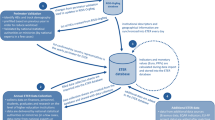Abstract
IT is often the case that a system, whether of Government or of social custom, passes muster until its shortcomings are brought to light by some specific instance of hardship or injustice. The reform introduced in the constitution and government of the University of London, due to the report of the Commissioners of 1898, was devised to remedy alleged shortcomings in the system of awarding degrees on examinations alone; and the “internal” side of the University was then constituted, in which the teachers were given considerable (but in the opinion of the writer, insufficient) control over teaching and examinations. In spite of the fact that purely external examinations (i.e. examinations in which the teacher takes no part) were unknown, save in London, in China (the system has since that time been altered there), and in New Zealand and in India (the latter two countries having copied the system in vogue in the University of London), it was resolved that this “external” system should be continued; it has ever since formed one of the divisions of the University.
This is a preview of subscription content, access via your institution
Access options
Subscribe to this journal
Receive 51 print issues and online access
$199.00 per year
only $3.90 per issue
Buy this article
- Purchase on Springer Link
- Instant access to full article PDF
Prices may be subject to local taxes which are calculated during checkout
Similar content being viewed by others
Author information
Authors and Affiliations
Rights and permissions
About this article
Cite this article
RAMSAY, W. The Value of the “External” Degrees of the University of London. Nature 88, 445–446 (1912). https://doi.org/10.1038/088445a0
Issue Date:
DOI: https://doi.org/10.1038/088445a0
Comments
By submitting a comment you agree to abide by our Terms and Community Guidelines. If you find something abusive or that does not comply with our terms or guidelines please flag it as inappropriate.



